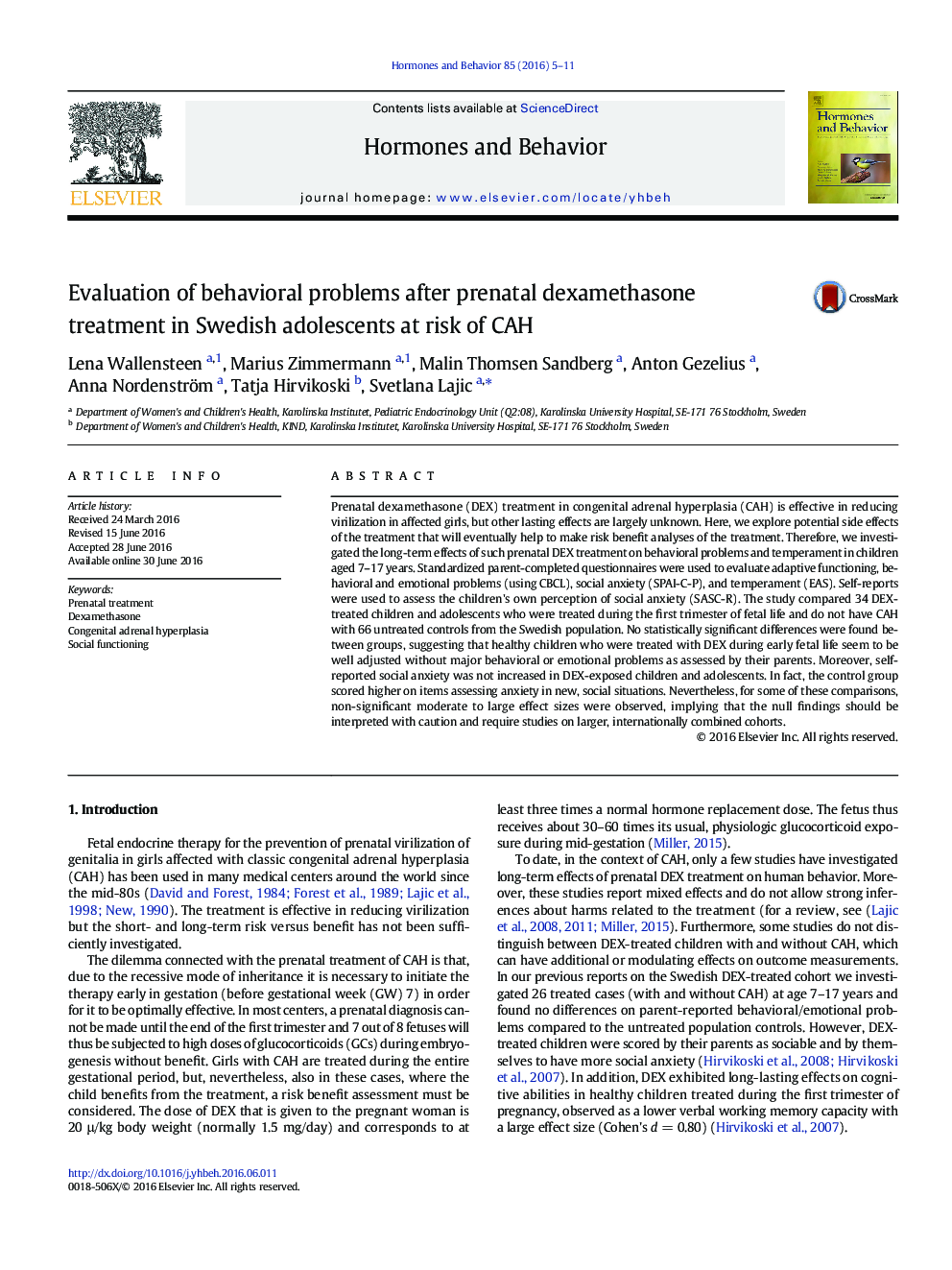| Article ID | Journal | Published Year | Pages | File Type |
|---|---|---|---|---|
| 323019 | Hormones and Behavior | 2016 | 7 Pages |
•Children treated with dexamethasone during early fetal life do not exhibit any behavioral problems or psychopathology, at age 7-17 years.•No increase in social anxiety either self-reported or parentally assessed after prenatal dexamethasone treatment.•No negative effect of dexamethasone on school performance, assessed with CBCL.•Overall, children at risk of CAH and who were treated prenatally with dexamethasone are well adapted.
Prenatal dexamethasone (DEX) treatment in congenital adrenal hyperplasia (CAH) is effective in reducing virilization in affected girls, but other lasting effects are largely unknown. Here, we explore potential side effects of the treatment that will eventually help to make risk benefit analyses of the treatment. Therefore, we investigated the long-term effects of such prenatal DEX treatment on behavioral problems and temperament in children aged 7–17 years. Standardized parent-completed questionnaires were used to evaluate adaptive functioning, behavioral and emotional problems (using CBCL), social anxiety (SPAI-C-P), and temperament (EAS). Self-reports were used to assess the children's own perception of social anxiety (SASC-R). The study compared 34 DEX-treated children and adolescents who were treated during the first trimester of fetal life and do not have CAH with 66 untreated controls from the Swedish population. No statistically significant differences were found between groups, suggesting that healthy children who were treated with DEX during early fetal life seem to be well adjusted without major behavioral or emotional problems as assessed by their parents. Moreover, self-reported social anxiety was not increased in DEX-exposed children and adolescents. In fact, the control group scored higher on items assessing anxiety in new, social situations. Nevertheless, for some of these comparisons, non-significant moderate to large effect sizes were observed, implying that the null findings should be interpreted with caution and require studies on larger, internationally combined cohorts.
